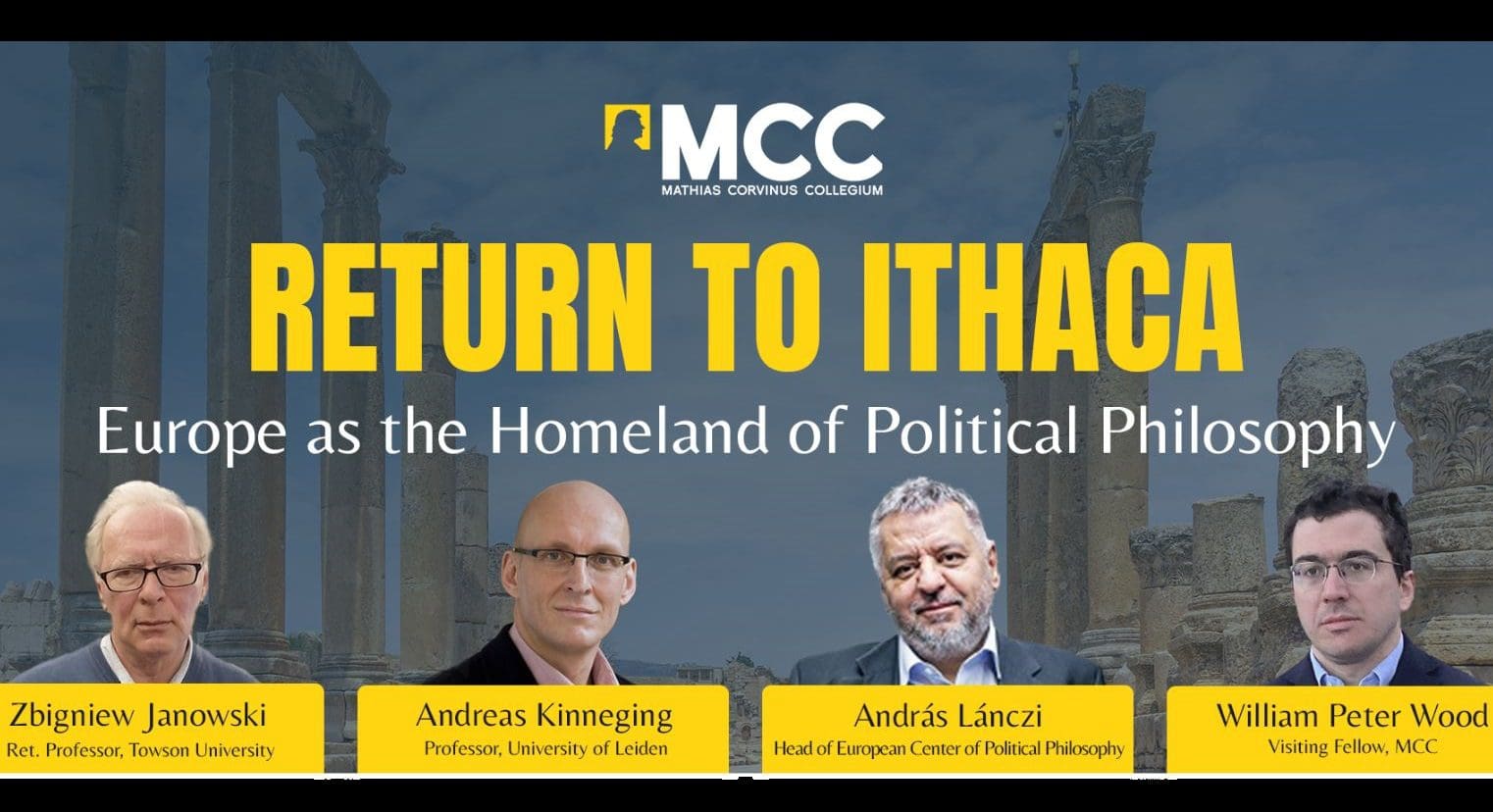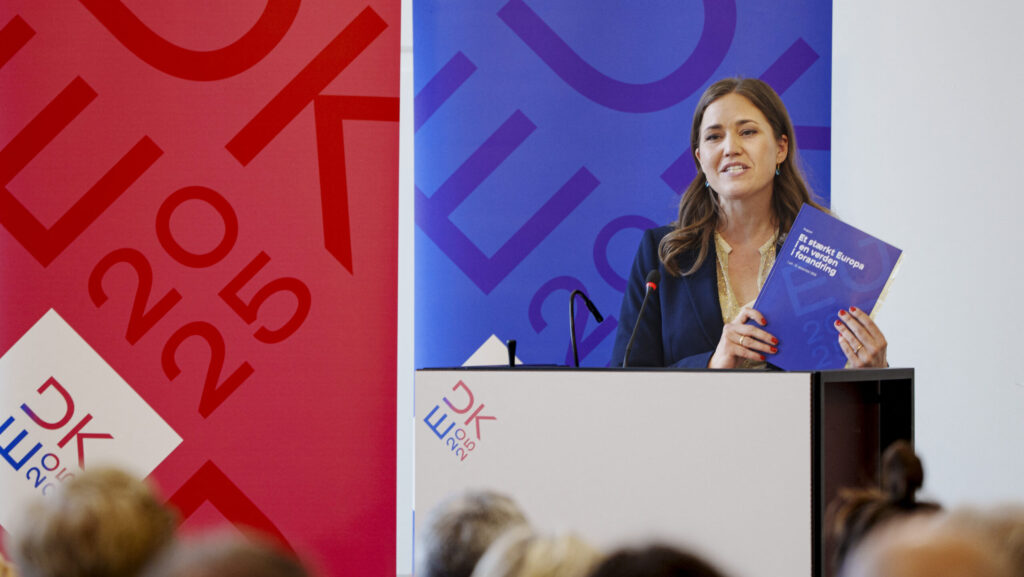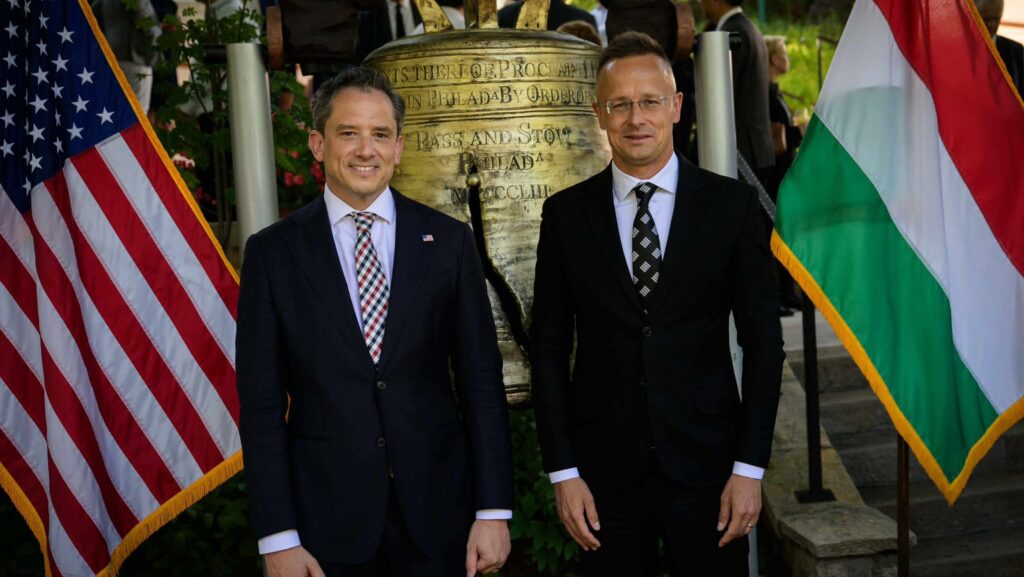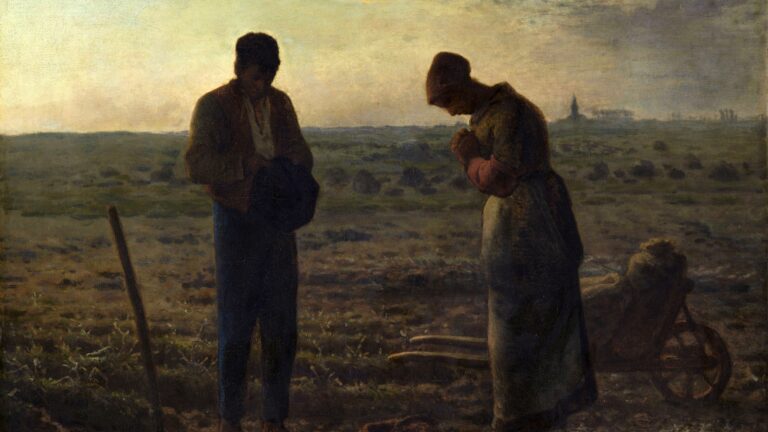On 10 March, Mathias Corvinus Collegium hosted a panel discussion announcing the establishment of the European Center of Political Philosophy, a think tank dedicated to exploring the most relevant questions of the age of nihilism. The focus of the day was political philosophy, while the aim is educating young minds about how liberty has always been the highest goal in European culture.
Zoltán Szalai: ‘Restoring Political Philosophy To Its Rightful Place in Europe’
Opening the event, Zoltán Szalai, General Director of the MCC gave his welcoming remarks. He emphasised that this is an important event, as their purpose with the new centre is to bring political philosophy ‘home’ to Europe. He added that political philosophy does not attempt to understand the world, rather it seeks to answer questions about it based on facts. He went on to say that the main focus of the discipline is to explore human nature and understand community, thus it is much more descriptive than prescriptive.
András Lánczi: ‘Europe Needs Its Own Political Philosophy’
Following the opening statements, András Lánczi, the new head of the European Center of Political Philosophy at MCC, took the floor. He too spoke about political philosophy per se, saying that ‘if we want to understand ourselves today, humankind and its problems as a whole, then there are several approaches’. He expressed his desire
that the idea of political philosophy should return to Europe from America.
Lánczi then added that political philosophy has been under attack recently. And while in the 19th century, a new renaissance emerged in the field, because of the crisis in Europe, many philosophers ended up fleeing to the US. This is how the centre of political philosophy itself moved to the USA.
He also added that the leftist influence on US schools led to classical political philosophy being marginalised. Thus, Europe needs its own political philosophy, specifically one that returns to the classics, going back to ancient Greek ideas. As he put it, ‘we have to go back for answers’. While many believe that technology and science will solve all mankind’s problems, they forget how important it is to look into the past for answers as well.
The speaker continued by saying that political philosophy is about answering the great questions and addressing the greatest issues of humankind, adding that ‘he and his colleagues believe that it is possible to carefully study old texts, going against the main current of today.’
Andreas Kinneging: ‘Intellectual Tradition Is Of The Utmost Importance’
Andreas Kinneging, Professor of the Philosophy of Law at the University of Leiden, followed Lánczi on stage. He began by stating that it is quite obvious that the birthplace and home of political philosophy are in fact Europe, Greece more specifically. He went on to say that it was even Europe’s monopoly at one point. However, the professor added that ‘categorising philosophers by their areas of publication is not right’, emphasising that if one looks at the work of a philosopher thinking that ‘they only dealt with specific topics’, they are bound to be wrong. He said that every philosopher and great thinker is a political philosopher, even if they are not specifically referred to as such. He also claimed that they have all asked the ‘ultimate’ questions about the world and man’s place in the world. Kinneging added that the new centre of MCC will not only be interested in the theory of state,
but in a much broader view of philosophy, looking to answer the ‘ultimate’ questions.
He said that intellectual tradition is of the utmost importance, since intellectual tradition rules the world; and that ideas depend on and are inspired by those that were already proposed once by great thinkers, perhaps even centuries before. The speaker lamented the fact that many people believe that ‘we know more about reality and the world of men than we ever did before, so there is no reason for political philosophy.’ Many others also believe that science and technology are far better disciplines because they give a factual picture of reality. However, the speaker does not agree with these sentiments.
Kinneging added that political philosophy survived more in the US than in the EU because there are more classical schools there that deal with political philosophy based on European thinkers who had to flee to the US. He concluded by saying that ‘we have radicalised democracy, thus, we have to bring political philosophy back to life’.
Zbigniew Janowski: ‘Our Love Of Equality Will Destroy Democracy’
Zbigniew Janowski, Retired Professor of Philosophy at Towson University spoke next. He said that the modern world is chaotic and disorganised, with one prominent idea behind it being equality. He went on to state that the main problem of politics is political authority as it has been since the dawn of politics.
The question always remains: Who holds political power? Because someone always does,
as he put it.
He added that many thinkers imagined a completely different society from what we live in today, with political authority not being present in their ideas. He quoted Plato’s Republic, and the cycle that it describes. This cycle is ‘democracy will disappoint us, then anarchy will follow, and from anarchy, tyranny is born.’ He then warned that the current phenomenon of everyone striving for more and more equality is what will end up destroying democracy. He concluded by saying ‘we need to give up our love of equality, otherwise we will end up killing democracy.’








